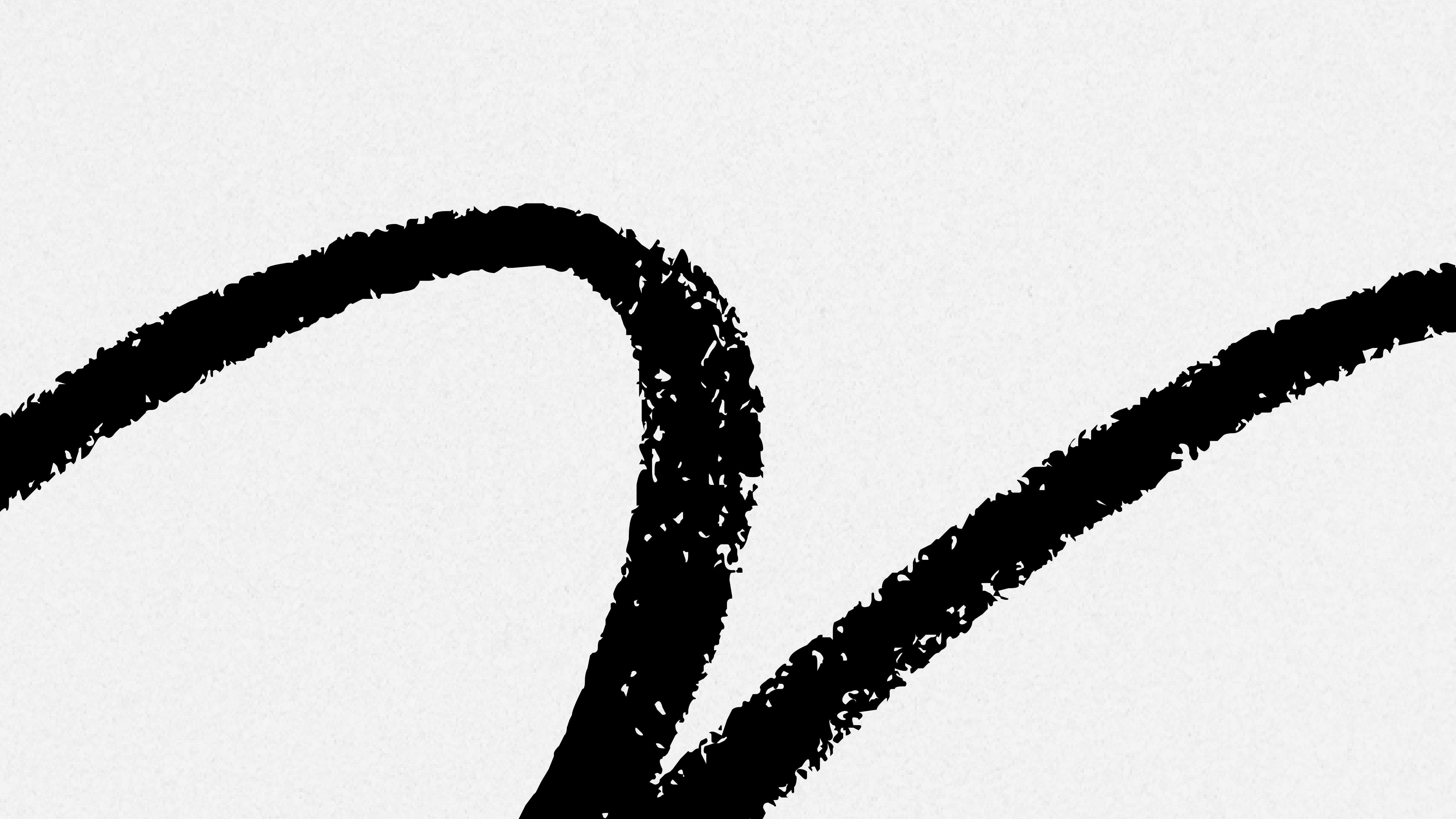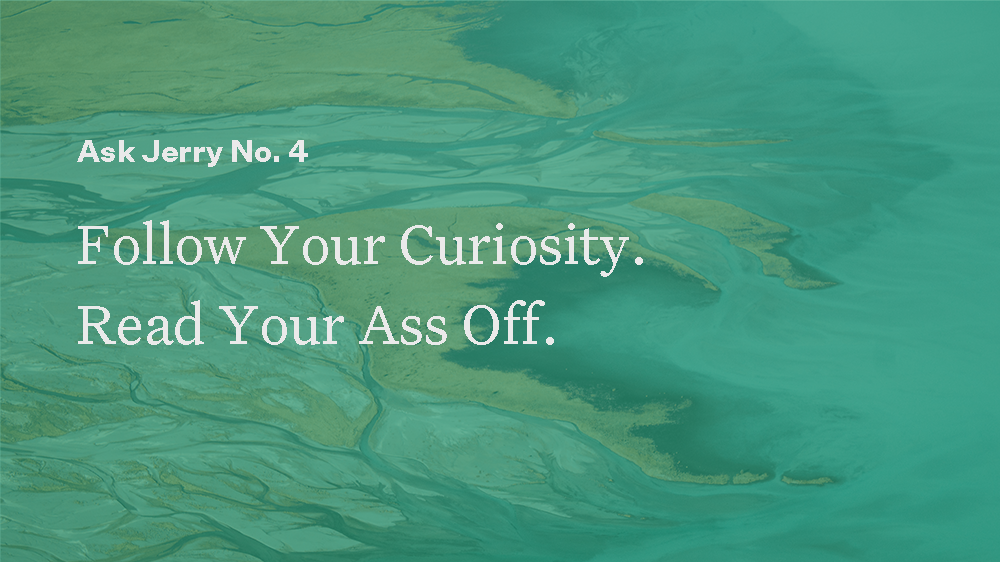
This post was written by Jerry Colonna and Andy Sparks.
A reader asks: What are your sources of inspiration? I found that every concept you talk about is rooted in different philosophies I had read or used before myself. I’d like to learn more about the specific sources of your ideas so I can dig deeper.
Jerry Colonna: I’ll share some of my sources and my journey, but what’s more important is the methodology: read your fucking ass off.
I remember when I first started exploring Buddhism. The first book I read related to Buddhism was When Things Fall Apart by Pema Chödrön, an American Buddhist nun. I was so profoundly moved by it—I cried my way through it. But then I wasn’t satisfied. I had to go to her sources and read her teachers.
Pema Chödrön’s teacher, Chögyam Trungpa Rinpoche, was a very important but controversial Tibetan Buddhist teacher. So the doorway to my understanding of Buddhism is through Tibetan Buddhism, which is distinct from say, Zen Buddhism, which is distinct from an Americanized Western Buddhism or traditional Theravada Buddhism.
I then came to Suzuki Roshi, whom we referenced in our second edition, because of something Pema mentioned. Pema, an American Buddhist nun, trained by a Tibetan Buddhist monk, who referenced a Zen Buddhist teacher, who turned out to be one of the most important figures in the development of American Buddhism, Suzuki Roshi. I followed my curiosity.
We all stand on the shoulders of giants, as Bernard of Chartres said. Every giant who we idolize is standing on the shoulders of their giants. All intellect, all progress, all wisdom is built upon our ancestors.
So, who are my sources? I’ll give you another example because it depends on the angle in. Let’s take psychology, which is another well I draw from. For much of the last thirty years and until she passed away, I worked with psychoanalyst Dr. Avivah Sayres, whom I wrote about frequently in my book. She was trained in a methodology known as Modern Psychoanalysis, which was developed by Hyman Spotnitz, who studied under Anna Freud, who was Sigmund Freud’s daughter. But I also feel a kinship with Jungian analysis, which is different from Freudian analysis.
For this reason, it’s very challenging to answer the question, “Who are my sources?”
I think a better way to answer that question is to say, “What is my methodology?” And my methodology is to follow my curiosity. I follow my curiosity backward. For example, who influenced Freud? William James, the father of American psychology. And who influenced William James? Buddhism!
We all stand on the shoulders of giants, as Bernard of Chartres (often misattributed to Isaac Newton) said. Every giant we idolize is standing on the shoulders of their giants. All intellect, all progress, all wisdom is built upon that of our ancestors.
Often, I can’t tell you if my source is Milton or Shakespeare or Fred Wilson. What I don’t do is constrain myself from tapping the curiosity.
I’ve been collecting quotes and things I’ve read over time for decades. By the time we started Reboot, I had collected some 6,000 individual quotes that I had read over the years. Originally I had them in a Word document and eventually I moved them to a spreadsheet in Google Drive. And this spreadsheet of quotes became the basis of so much of what we do at Reboot, because I realized so many issues people struggle with come from different places.
Finding the sources is less relevant, although I understand the impulse. What’s more relevant is the methodology, which I’ll put succinctly: read your fucking ass off.
Andy Sparks: What does it mean to “go to the source”? We might combine our influences and inspirations into new ideas, and in fact, this is how all ideas happen. But every one of those influences and inspirations come from somebody, somewhere, and some time. And those thinkers were influenced and inspired by the work done and the lives lived before them. You might never find the “ultimate” source for some idea, but by going to the source, we can trace the intellectual history of these ideas, and sometimes we’ll find—or re-find—something others missed.
As Jerry answered this week’s question, I began to feel a kinship develop between our ways of doing things. Jerry, twenty-six years older than me, also writes down quotes and poems and phrases in case a future self might find them useful. Each of us love chasing the intellectual history of ideas, letting our curiosity lead us. Talking with him about his practices was like discovering a kind of secret society—one that’s so secret, the members don’t even realize they belong.
The experience reminded me of something else, too, another reason why I “go to the source,” laid out here in a scene from Alan Bennett’s History Boys:
“The best moments in reading are when you come across something—a thought, a feeling, a way of looking at things—which you had thought special and particular to you. Now here it is, set down by someone else, a person you have never met, someone even who is long dead. And it is as if a hand has come out and taken yours.”
To go to the source isn’t just an act of intellectual curiosity; it can be a stay against loneliness. Ideas don’t float out in some brainy ether—they were written down by a real person, at a real time, in a real place. It’s a reminder that you’re part of something bigger, fun to think about how one day you might be part of the source, and chances are, when that person was struggling with that idea, they got a little help from the source.◼️
Edits by Rachel Jepsen, Alexandra Macqueen, Stew Fortier, Gian Segato, Chris Harvey. Photo credit to Jordan Heath.
A portion of the proceeds from paid subscriptions to Ask Jerry and the Everything bundle will be donated to Defy Colorado. Defy Colorado teaches people with criminal histories to redirect their skills toward the creation of legal businesses and values-driven careers; breaking cycles of incarceration and poverty. Click this link to watch a video to learn more about Defy Colorado. You can also contribute to their end-of-year fundraising campaign by clicking here.
Ask Jerry is a limited series produced by Andy Sparks and the team at Everything, featuring Jerry Colonna, author of Reboot: Leadership and the Art of Growing Up, and CEO of executive coaching and leadership development firm Reboot.
Since founding Reboot in 2014, Jerry has developed a reputation for helping leaders grow through what he calls “radical self-inquiry,” and he is one of the most sought after coaches in the world of startups. In this series, we discuss questions about psychological habits, behavioral patterns, and the inner demons that can lead people to succeed—yet can be detrimental to their relationships and well-being. Submit your question here.
The Only Subscription
You Need to
Stay at the
Edge of AI
The essential toolkit for those shaping the future
"This might be the best value you
can get from an AI subscription."
- Jay S.
Join 100,000+ leaders, builders, and innovators

Email address
Already have an account? Sign in
What is included in a subscription?
Daily insights from AI pioneers + early access to powerful AI tools








Comments
Don't have an account? Sign up!